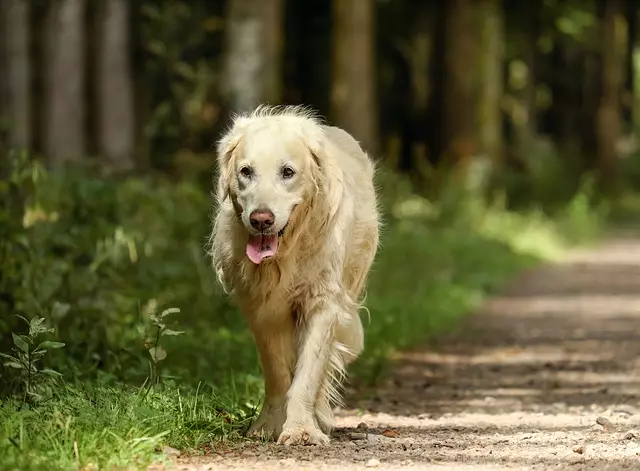As our beloved canine companions age, they transition into a stage in life filled with wisdom and cherished memories. For many of us, our dogs are not just pets; they’re treasured family members. Whether you’ve had the joy of raising your dog from an exuberant puppy or have decided to give a senior rescue dog a warm home, ensuring their happiness and health in their twilight years requires awareness and compassion. This article will explore key changes that occur in senior dogs and offer insightful tips to enhance their quality of life.
The behavioral patterns of dogs often shift as they age. Senior dogs may demonstrate reduced enthusiasm for previous activities they once relished. For example, a dog that was previously eager for lengthy walks or spirited games of fetch might prefer a slower pace. Recognizing these behavioral changes is essential; it’s not just a sign of aging but also an indicator of their physical comfort. Older canines generally benefit from more leisurely walks and interactive yet gentle play. This allows them to engage without overexertion, ensuring that they enjoy their time spent with you while minimizing physical strain.
One of the most common issues aging dogs face is joint stiffness and discomfort. These health challenges can affect their mobility, making them hesitant to jump, climb stairs, or participate in activities they once enjoyed. Fortunately, there are various strategies to support joint health. Natural supplements like glucosamine and omega Fatty acids are renowned for their efficacy in maintaining robust joint function. Incorporating gentle stretching exercises or even short, controlled play sessions can also aid in environment adaptability. Remember, maintaining an active lifestyle is crucial to your dog’s well-being, even if the activities need to be adjusted for comfort.
Aging is a gradual process that affects more than just mobility; it can also dull a dog’s senses. Common issues include diminished sight and hearing capabilities. If your pup seems to misjudge distances or appears disinterested when called, it may signal a need for sensory evaluation. Introducing toys with varied textures or sounds can help stimulate their senses while also providing a fun avenue for engagement. Additionally, establishing routine vet visits ensures that any arising issues are detected and treated promptly, allowing for ongoing adjustments based on your dog’s evolving needs.
Creating a Comfy Sanctuary
Joint discomfort can lead to restlessness, making it paramount that our older dogs have comfortable resting spots. Providing multiple padded beds in your home can allow your senior dog the freedom to find a cozy nook wherever they feel most comfortable. Consider orthopedic dog beds designed specifically to alleviate pressure on aching joints; these can significantly improve their quality of rest, supporting their overall health. It’s also beneficial to monitor their sleeping patterns and adjust routines that cater to their need for comfort and security during the day and night.
Dietary needs evolve as dogs age. Maintaining a well-balanced diet tailored to their specific health requirements is essential. With a reduction in metabolism, older dogs often require less caloric intake. Discussing dietary adjustments with your veterinarian can help ensure that all necessary nutrients are present while avoiding unnecessary weight gain. Integrating supplements, specifically those targeting joint health, digestive support, and skin conditions, can also be advantageous. Fresh water should always be accessible and serving smaller, more frequent meals can aid digestion and prevent discomfort.
Routine veterinary check-ups are essential as dogs enter their golden years. Regular assessments can catch potential health issues early, greatly improving the chances of successful management and treatment. Aim for biannual visits to monitor weight, dental health, and overall wellness. Engaging with your vet regarding any behavioral or physical changes you observe can guide necessary interventions that improve your pet’s quality of life.
Adopting a senior dog opens a window to a uniquely rewarding relationship. These dogs possess a calm demeanor coupled with a profound appreciation for companionship. They often settle into life with their new families seamlessly, providing a deeply enriching bond. Cherishing the moments spent together—not just during play but during quiet times, cuddles, and gentle reassurance—is vital. These shared experiences are incredibly gratifying and can enhance both your lives.
As you provide for your senior dog, remember that love, respect, and attention are invaluable gifts you can bestow. With the right care, support, and engagement, your senior dog can enjoy an enriching, fulfilling life, repaying your kindness with loyalty and affection. They’ve been by your side through good times and bad—now it’s time to ensure that their years are as joyful and content as they truly deserve.

